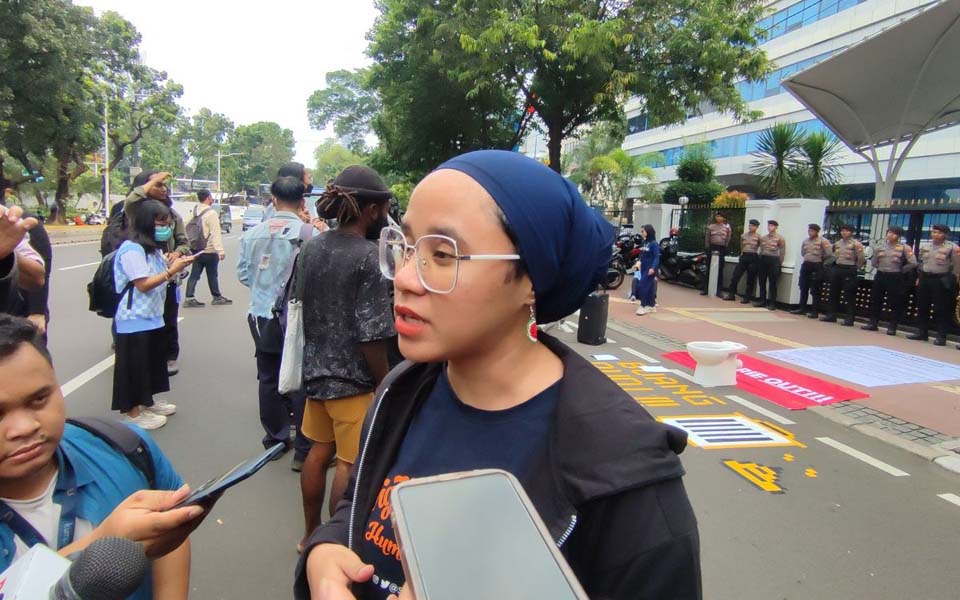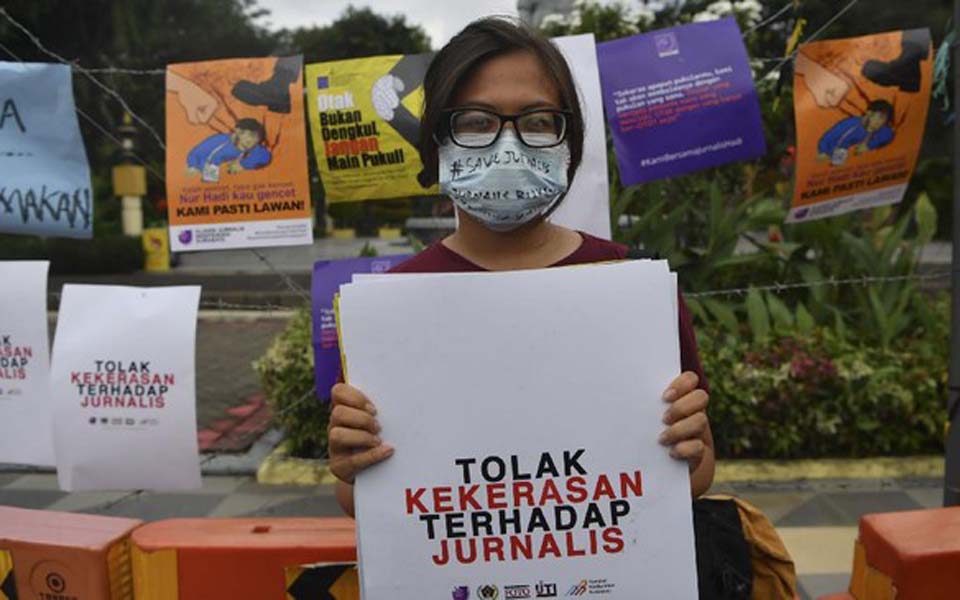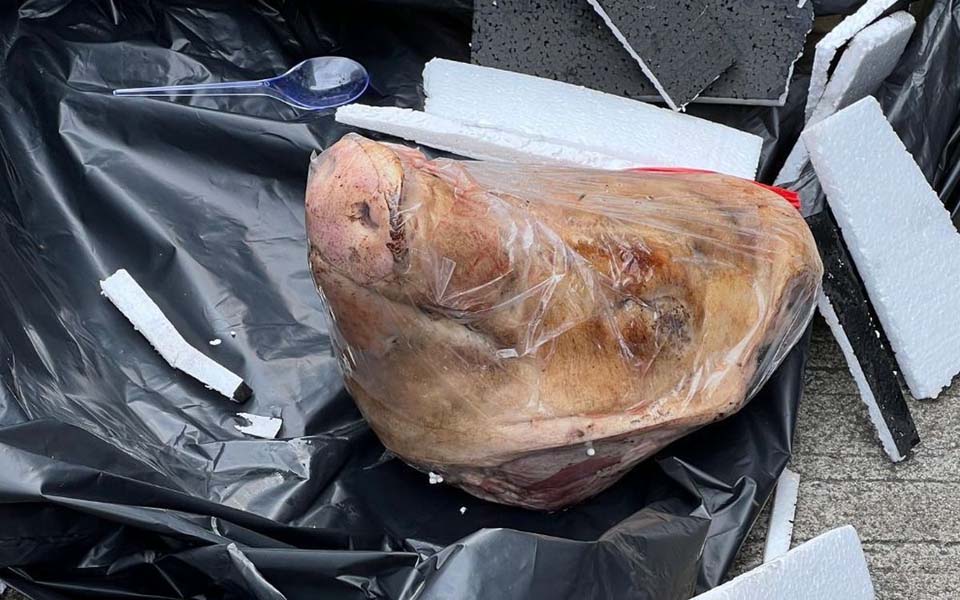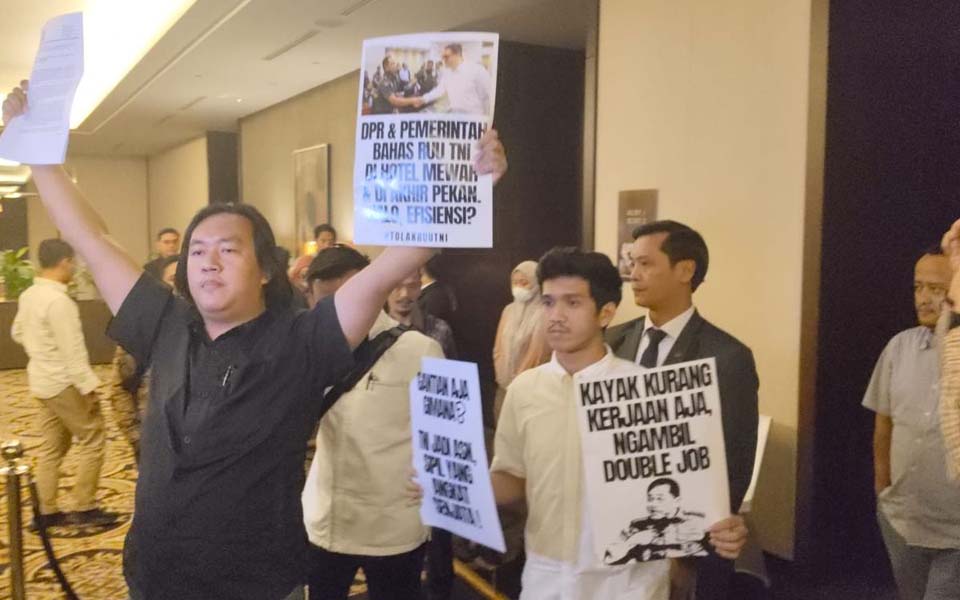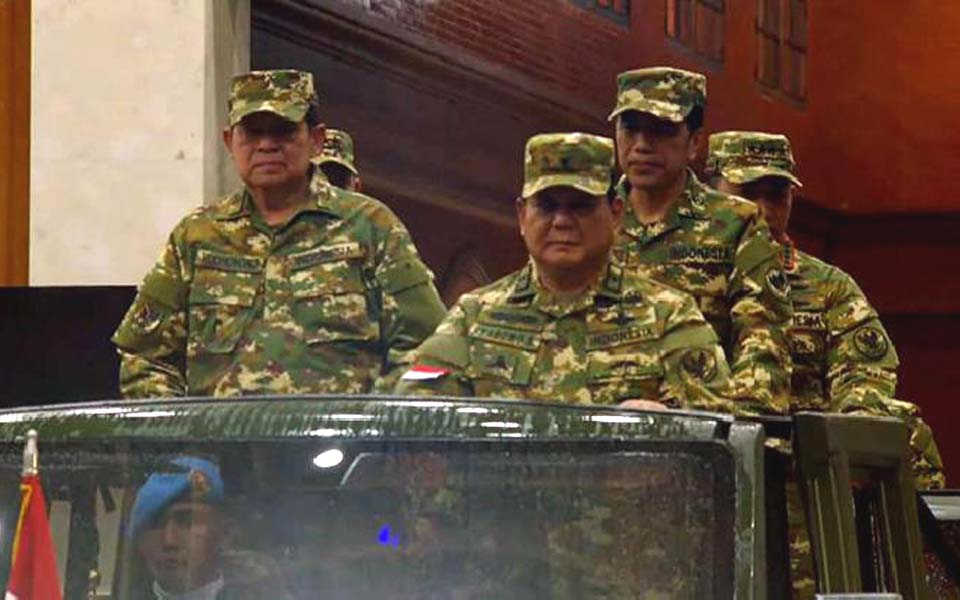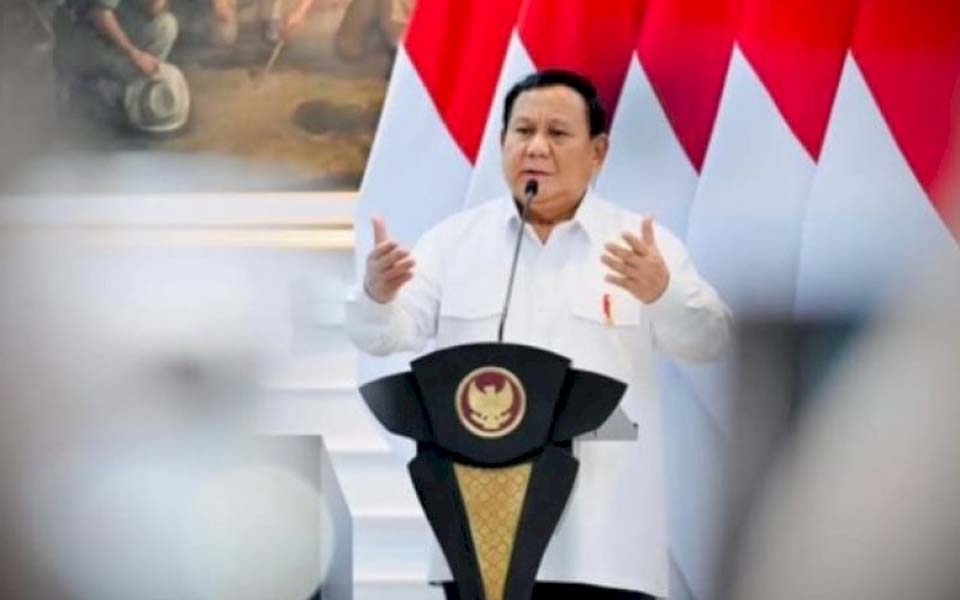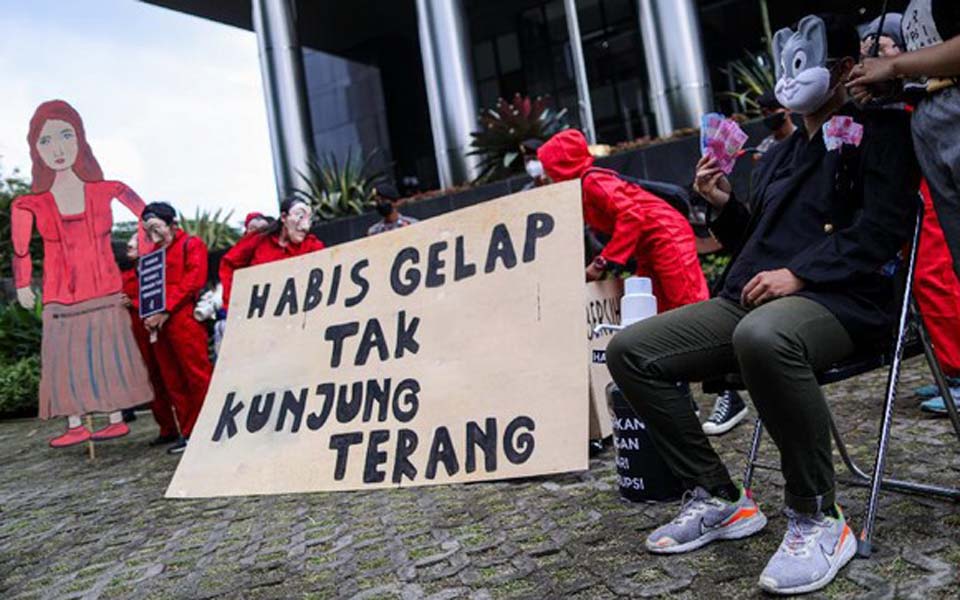Jakarta – The criminalisation of activists in 2019 and 2020 has been cited as one of the factors for the decline in the quality of democracy in Indonesia.
Based on a report by the Economist Intelligence Unit (EIU), democracy in Indonesia scored its worst figure ever with a score of 6.3 and was in 64th place out of 167 countries.
Advocacy Team for Democracy (TAUD) member Teo Reffelsen says that the criminalisation of activists contributed to Indonesia's poor record on civil freedoms.
"It has been marked by the criminalisation of expression and public opinion, through to repressive actions ridden with violence", said Reffelsen as quoted in an official press release received by CNN Indonesia on Wednesday September 15.
Between 2019 and 2020, said Reffelsen, TAUD recorded at last 10 incidents of the criminalisation of activists in Indonesia.
This included six Papuan activists, Watchdoc founder and senor journalist Dandhy Dwi Laksono, Jakarta State University (UNJ) sociologist Robertus Robet, musician Ananda Badudu, Papua Student Alliance (AMP) lawyer and human rights activist Veronica Koman and public policy activist Ravio Patra.
In addition to this, there were as many as 5,198 demonstrators who were arrested during the protests against the Omnibus Law on Job Creation in September and October 2019, Save Indonesia Action Coalition (KAMI) activists Syahganda Nainggolan and Jumhur Hidayat along with Banda Aceh Syiah Kuala University lecturer Saiful Mahdi.
In 2021 meanwhile, TAUD recorded at last 12 cases of criminalisation of activists. Two of these cases were related to senor state officials, namely Presidential Chief of Staff Moeldoko and Coordinating Minister for Maritime Affairs and Investment Luhut BInsar Pandjaitan.
"The criminalisation of two Indonesian Corruption Watch (ICW) researchers, Egi [Primayogha] and Miftah, threats of criminalisation against [rights activist] Haris Azhar from the Lokataru [Foundation] and Fatia Maulidiyanti from Kontras [Commission for Missing Persons and Victims of Violence]", wrote Reffelsen.
In addition to this, Reffelsen also said they found several cases of attacks on civil freedoms in the form of doxing or attacks in digital space against people who were critical of the government such as those suffered by Ravio Patra and critical online media Tempo.co and Tirto.id.
"Through to the [police] cyber patrols which were legitimised by an instruction by the Indonesian police chief", said Reffelsen.
Aside from the aspect of civil freedoms, the other aspect was that it appears as if the government lacks the involvement of public participation in policy formulation which was also a factor in causing Indonesia's democracy index to plummet. Such as the enactment to revisions to the Corruption Eradication Commission Law, the Omnibus Law and other legislation.
Another aspect was actions by law enforcement agencies such as the judiciary which are seen as corrupt and the lack of seriousness on the part of the government to resolve human rights violations.
"The decline in Indonesia's democratic index is in keeping with TAUD's findings on the ground, primarily in relation to civil freedoms which have shrunk", said Reffelsen. (iam/ptj)
[Translated by James Balowski. The original title of the article was "Kriminalisasi Aktivis Disebut Buat Indeks Demokrasi Menurun".]






